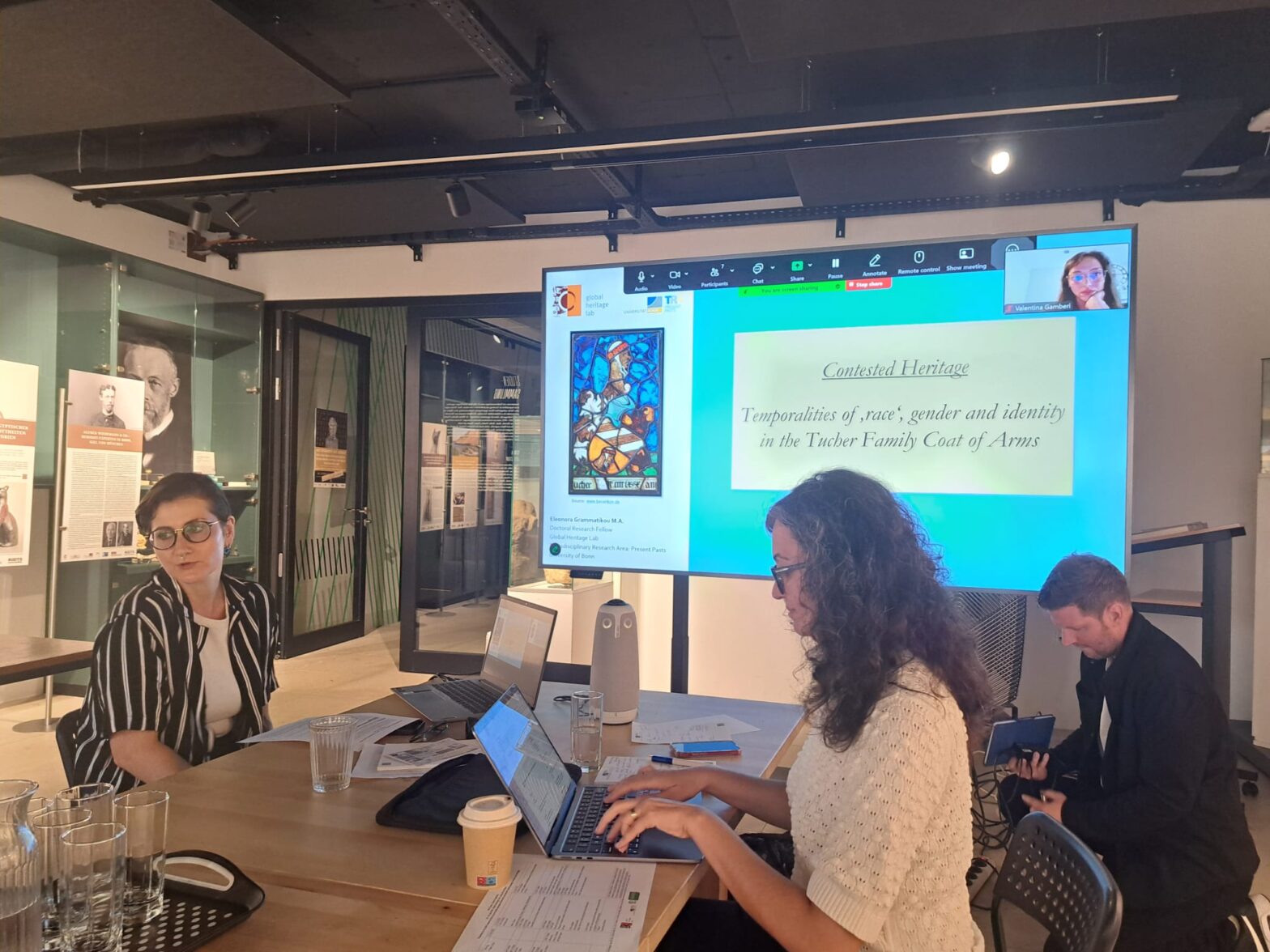On July 23–24, 2025, the Global Heritage Lab co-hosted the two-day workshop Past Tense, Future Imperfect: Temporalities as Mobilizing Force in Bonn, organized by the EASA networks NAoHH (Anthropology of History and Heritage) and FAN (Future Anthropologies Network). The event brought together scholars to explore how concepts of time shape the way we study, inherit, and contest cultural heritage.
Doctoral Researcher Eleonora Grammatikou contributed to the program with a presentation titled Contested Heritage – Temporalities of ‘race’, gender and identity in the Tucher Family Coat of Arms. Engaging directly with the workshop’s central theme, Eleonora examined how a centuries-old family crest featuring a racialized figure becomes a site of affective and embodied negotiation in the present. Through a series of qualitative, elicitation-interviews with members of the Tucher family in Nuremberg, Eleonora’s research traces how inherited symbols are not merely preserved memories, but can actively be negotiated, reinterpreted and contested, especially when their meanings clash with contemporary ethical and political sensibilities. Eleonora’s work highlights temporality not as a linear progression but as a recursive, affective process through which heritage is continually made and unmade.
The workshop encouraged exactly these kinds of grounded, methodologically innovative approaches. Across panels and discussions, participants explored how temporalities are not just theoretical frameworks, but tools that can be activated emotionally, politically, and analytically, to open up new understandings of contested pasts and uncertain futures.

